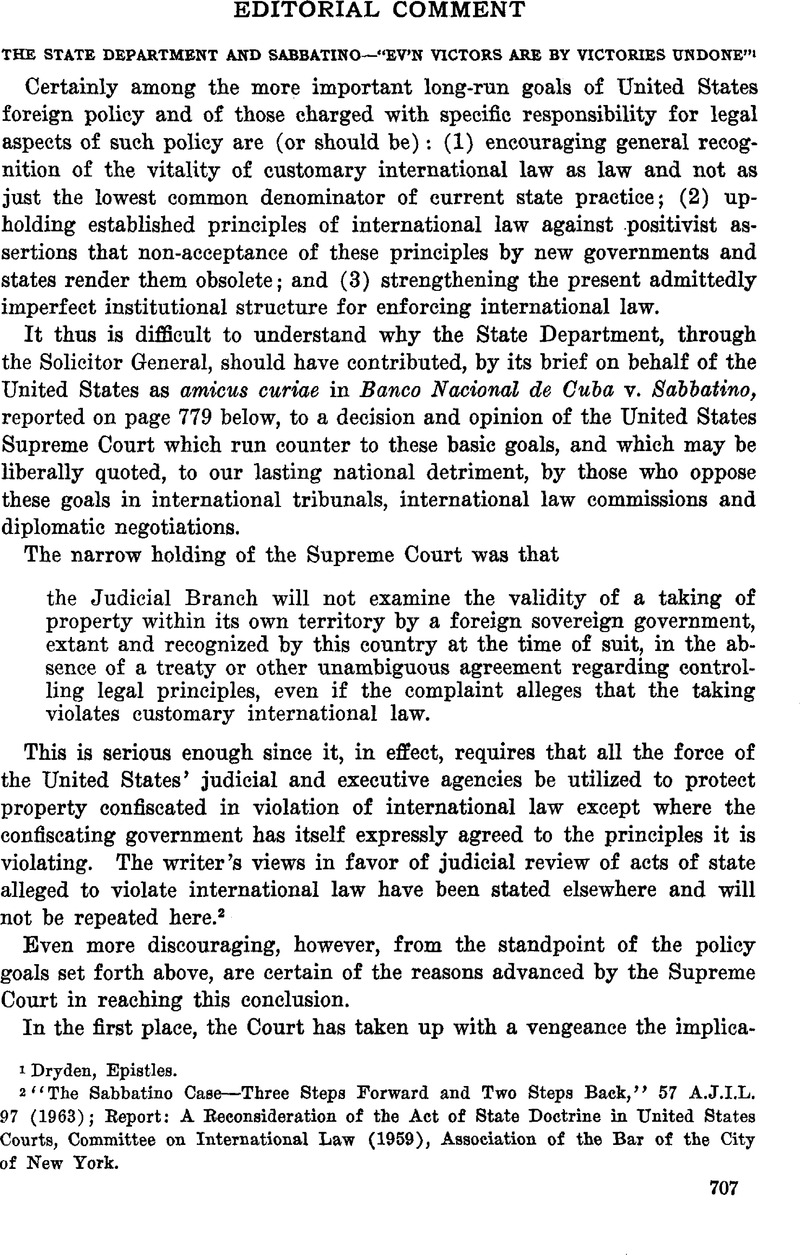No CrossRef data available.
Published online by Cambridge University Press: 28 March 2017

Dryden, Epistles.
2 “The Sabbatino Case—Three Steps Forward and Two Steps Back,” 57 A.J.I.L. 97 (1963); Report: A Reconsideration of the Act of State Doctrine in United States Courts, Committee on International Law (1959), Association of the Bar of the City of New York.
3 Brief for the United States as amicus curiae (September, 1963), pp. 27-28; 2 International Legal Materials 1009, 1018 (1963): “Decisions by American courts striking down foreign official acts of state which impair American property interests abroad will probably not be viewed abroad as dispassionate applications of neutral international law principles. More likely, they will be frequently seen in many other nations as reflecting merely parochial American views partisan to American national interests.“
4 U. S. brief, cited above, at 30-31. The grossly inadequate recovery from the Soviet Union (about 7¢ on the dollar) is ignored, as well as the current difficulties in effecting adequate settlements with Czechoslovakia and Hungary.
5 Hackworth, Digest of International Law 658 (1942); 32 A.J.I.L. Supp. 193 (1938).
6 See Bernstein v. Van Heyghen Freres, S. A., 163 F. 2d 246 (1947), 42 A.J.I.L. 217 (1948); Bernstein v. N. V. Nederlandsche-Amerikaansche Stoomvaart Maatschappij, 173 F. 2d 71 (1949), 44 A.J.I.L. 182 (1950); 210 F. 2d 375 (1954), 48 A.J.I.L. 499 (1954). The text of the State Department's letter submitted in the second Bernstein case was as follows: “The policy of the Executive, with respect to claims asserted in the United States for the restitution of identifiable property (or compensation in lieu thereof) lost through force, coercion, or duress as a result of Nazi persecution in Germany, is to relieve American courts from any restraint upon the exercise of their jurisdiction to pass upon the validity of the acts of Nazi officials.” 20 Dept. of State Bulletin 592, 593 (1949).
7 376 U. 8. 398,427 (U. S. Sup. Ct., March 23, 1964): “ I f the act of state doctrine is a principle of decision binding on federal and state courts alike but compelled by neither international law nor the Constitution, its continuing vitality depends on its capacity to reflect the proper distribution of functions between the judicial and political branches of the Government on matters bearing upon foreign affairs.“